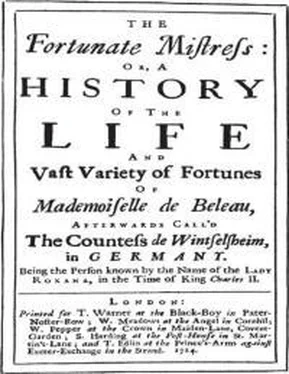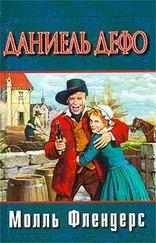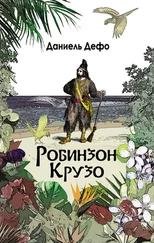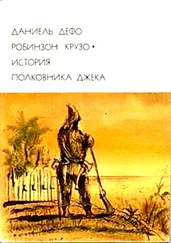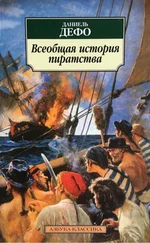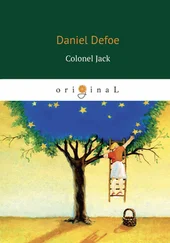DANIEL DEFOE
ROXANA
THE FORTUNATE MISTRESS
or, a History of the Life and Vast Variety of Fortunes of Mademoiselle de Beleau, Afterwards call’d The Countess de Wintselsheim, in Germany .
Being the Person known by the Name of the Lady Roxana in the Time of King Charles II .

The famous ROXANA.
Facsimile of frontispiece to first edition
Roxana (1724), Defoe’s strange last novel, is among his most fascinating works. Unlike his other novels, which without exception end with the triumph of the protagonist, Roxana is the story of the moral deterioration and ultimate defeat of the heroine. But what makes it unusual among Defoe’s novels and important to the subsequent development of English fiction is Defoe’s focus upon the interior drama of Roxana’s moral decay, the psychological turmoil of a woman who wilfully chooses the glamorous but immoral life of a courtesan over the honourable but duller life of a married woman. The result of her decision, as she slowly comes to realize, is that she sacrifices personal integrity for worldly opportunity and in doing so is caught in a web of circumstances from which she struggles in vain to escape. Formally, Defoe’s other works of fiction are comedies. Roxana is his only tragedy.
Defoe turned to fiction when he was fifty-nine years old and at the height of his power and his reputation as a writer. Essentially he was a journalist – for nine years he single-handedly wrote the Review , a newspaper that appeared as often as thrice weekly – with a strong interest in politics that in his later years grew into a concern with larger questions of social order and family responsibility. But Defoe could, and did, write on anything – politics, history, geography, religion, economics, sex, marriage, psychology, magic, superstition – often employing a pseudonym and adopting another personality for rhetorical effect or as protective covering. His love of role-playing and disguise was an essential part of his personality, so that he took an evident relish in his skilful impersonations when he worked as a government spy for Robert Harley, the Lord Treasurer. It is not perhaps surprising that Defoe eventually began to write novels, or that he wrote them in the form of fictitious autobiographies, playing a wide variety of roles to do so. What is surprising is how vividly he realizes those imaginary lives – so much so that one of them, Robinson Crusoe, the original desert island hero, has become one of our cultural myths, like Faustus or Don Juan. Defoe lives the parts of his heroes and heroines, revealing their fears and desires, their selfish scheming as well as their capacity for sympathy and generosity. His achievement as a novelist, however, was not an inspired accident, but the result of years of practice as a professional writer which taught him how to develop and sustain a fictitious personality, to construct a story full of drama, and to deploy the words and images that would give force to his moral themes and life to his creation.
Like all true novelists, Defoe creates a fictional world. His protagonists inhabit a moral universe that defines their actions and gives meaning to the pattern of their lives, compelling us beyond pleasurable observation into moral assessment. The work of scholars like G. A. Starr and Paul Hunter has shown us how much Defoe owed in his earlier novels, particularly Robinson Crusoe , to the form of the Puritan spiritual autobiography in shaping his own fictional structures. We judge the actions of Robinson Crusoe or of Moll Flanders, as they do themselves, against a moral backdrop that throws the pattern of their lives into relief. The same thing may be said of Roxana , except that the pattern of spiritual autobiography has all but disappeared and the moral vision rests, not on the old seventeenth-century Puritan values, but on a more familiar world where individual needs and desires clash with social forces that demand compromise and threaten personal integrity. More than in any earlier novel, Defoe explores the way in which vanity and worldly ambition can destroy inner peace and normal human affection for others. Roxana is not nearly so emotionally self-sufficient as his earlier protagonists so often appear to be, and in his final novel Defoe pays unusual attention to personal relationships, especially the friendship of Roxana with her servant-companion, Amy, and the fatal estrangement of Roxana and her daughter, Susan. In his analysis of Roxana’s growing despair and the social circumstances in which she and the other main characters are trapped, we sense the growing theme of retribution. In no other novel by Defoe is the presence of the past so fateful and so insistent.
The development and final shape of the novel is controlled by Roxana’s choice between two paths in life: initially, virtuous poverty or sinful prosperity, then later, a respectable marriage or the glamorous but immoral life of a whore. Throughout the novel Roxana is torn between these alternatives, fatally tempted by wealth and flattery while yearning for respectability, until the emotional tug-of-war and its ruinous consequences help to destroy her life. The contrast between these two modes of existence is at once reinforced and enlarged by two major parallels, one spatial and the other temporal.
Defoe employs the geography of London – specifically, the opposition between the aristocratic and dissolute West End where the King and the court live, and ‘the City’ in the East End of London, the home of prosperous and respectable tradesmen, bankers, and shopkeepers – to underline the contrast between two poles of Roxana’s existence. In her highly successful life as a courtesan Roxana is provided with luxurious apartments in a house in Pall Mall where she gives lavish parties attended by the very highest levels of society. It is here that she wears her brilliant, if immodest, Turkish dress, and performs her celebrated ‘Turkish’ dance. When she gives up her high life as a courtesan and goes to live quietly in the City, the change suggests the symbolic as well as the geographical distance. Always a creature of disguises, Roxana now adopts Quaker dress, a severe, plain, and old-fashioned costume, as different from her gorgeous clothes in court circles as anything possibly could be. But even though she eventually marries the honest Dutch merchant and buries her past, Roxana retains and occasionally puts on her Turkish costume, the memento of her former life and, to Susan, proof of her identity as the Lady Roxana. Living respectably in the City, Roxana is pursued and finally ruined by her former life at the other end of town.
The contrast between the West End and the City, between exciting, aristocratic vice and dull, middle-class morality, is repeated at the international level by the contrast between France and Holland. Throughout Defoe’s life, that is, during the Restoration and the early eighteenth century, France, though generally feared and hated by Englishmen, extensively affected English taste, particularly in clothing styles, music, and the theatre. At the same time, as the leading Roman Catholic power and the home of the deposed Stuarts, James II and his son, the Old Pretender, France under Louis XIV represented the greatest possible threat to English national security and values. Holland, although a commercial rival, was a political ally and the home of William of Orange, and as a somewhat dull but Protestant power it appeared the antithesis of everything French. The fact that on the Continent Roxana’s two affairs are with a prince living in France (and employed by Louis XIV in secret diplomatic negotiations) and then with a respectable Dutch merchant, who sincerely offers to marry her, should be understood with an awareness of the social and political overtones. Roxana’s obstinate immorality is not merely sexual. In her preference for the French aristocrat over the bourgeois Dutchman, Roxana extends her crime by preferring a way of life that is the very opposite of everything Defoe considered desirable. The tragic ending of the novel springs directly from Roxana’s earlier moral choices. Married at last to the Dutch merchant, Roxana’s security is threatened by the evidence of the Turkish dress, associated with her glamorous, aristocratic, and immoral life, and with the prince in whose company she acquired it. Like the contrast of the West End with the City, the contrast of France and aristocratic values with Holland and middle-class values underscores Roxana’s choices in life and emphasizes her errors.
Читать дальше
